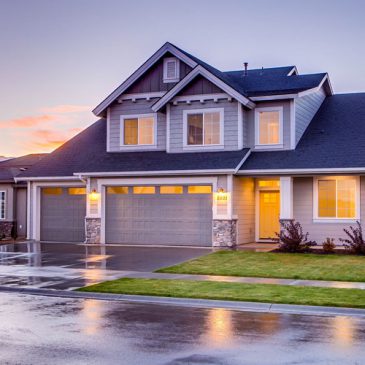Should You Be Looking for a Home to Buy With Pre-existing Solar?
Many more homes popping up on the market these days have solar arrays already installed on their roofs, which offers potential buyers a great way to save on energy costs. However, while solar has many benefits, there are a few key drawbacks to purchasing a home with existing solar equipment.
In this article, we’ll go over a few of the more important pros and cons to buying a home that already has solar panels installed.
Pro: Solar Saves Money in the Long Run
Many homeowners’ primary reasoning behind installing solar is to cut down on their electricity costs every month. Because solar energy provides 85%-90% of a home’s power, homeowners can save hundreds of dollars per year, especially if they participate in net metering.
Net metering, if offered by your city or state, allows you to receive credit for any extra energy you provide to the solar grid in your area, reducing your power costs even further. Many states and cities also offer tax credits for installing solar technology in your home.
Be sure to check the regulations imposed in the area where you’re looking to buy to evaluate whether paying a higher market price for a house with solar will result in net savings for you.
Pro: Solar Helps the Environment
The other major inducement to switch to solar is to reduce dependence on non-renewable energy sources like oil, gas, and coal.
Because the sun is an endless and fairly consistent energy source (depending on where you live, of course), and because it creates no fossil fuels or other pollution-causing waste, solar is a much cleaner way of powering your home, and an effective way of reducing your carbon footprint.
If you’re moving from a house without solar to one with solar, it’s a change you can feel good about sustainability-wise.
Con: Solar Leasing Threatens Buying Power
When looking at a home with existing solar, it’s vital to ask how the panels were or are being paid for. If the panels are on a lease – typically lasting 20 years – you may have to take on that lease as a contingency of your purchase.
These leases often function on an escalating basis, meaning that if you took the lease over from the previous owner, your rates would increase every year. Sellers are often loath to buy out the lease before selling to a new owner, so you’d have to factor those long-term costs into your budget.
Additionally, a lease like this would increase your debt-to-income ratio, threatening your chances of qualifying for home loans and/or a mortgage.
Con: Solar Increases Market Price
As mentioned above, a solar panel system – if owned outright – can increase the property value of a home – sometimes by as much as $15,000 to $20,000, which may push your home buying budget out of your comfort zone. It’s important to evaluate your income outlay, maintenance costs, and other factors when deciding if this higher upfront price is affordable for you, and worth the long-term savings.

